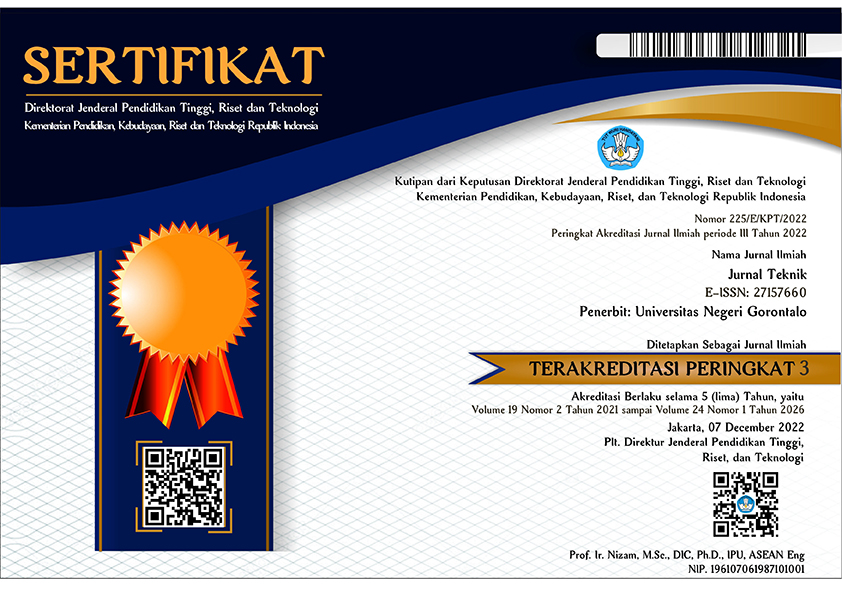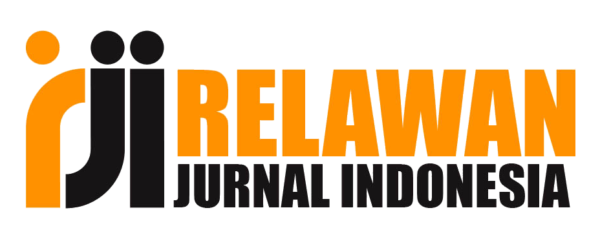Assesment Online Learning System di Masa Pandemi COVID-19 Menggunakan Metode Technology Acceptance Model
Abstract
In the situation of a pandemic novel COVID-19 throughout the world forced all changes in the order of activities that exist in society, one of which is in teaching and learning activities. As a solution to learning activities at the moment everything must be implemented online, both students and instructors are forced to adapt to the online learning system . This sudden change often causes problems related to learner's behavior. This study tries to observe student behavior towards learning activities that are forced to be done from home with the principle approach of the Technology Acceptance Model (TAM). The research respondents numbered 93 people and the elearning system tested was the use of learning media with whatsapp, LMS Moodle, zoom meeting and its combination. The results of this study can provide recommendations in distance learning in the future.
Downloads
References
Abidah, A., Hidaayatullaah, H. N., Simamora, R. M., Fehabutar, D., & Mutakinati, L. (2020). The impact of Covid-19 to Indonesian education and its relation to the philosophy of Merdeka Belajar. SiPoSE: Studies in Philosophy of Science and Education, 1(1), 38-49.
Dewi, W. A. F. (2020). Dampak COVID-19 terhadap implementasi pembelajaran daring di sekolah dasar. Edukatif: Jurnal Ilmu Pendidikan, 2(1), 55-61.
Firman, F., & Rahayu, S. (2020). Pembelajaran online di tengah pandemi Covid-19. Indonesian Journal of Educational Science (IJES), 2(2), 81-89.
Hari, Y., Brian, K., & Trisno, I. B. (2019). Perancangan sistem informasi kepuasan layanan pendidikan dengan pendekatan naïve bayes studi kasus di Nation Star Academy. Prosiding SNST Fakultas Teknik, 1(1).
Hari, Y., & Dewi, L. P. (2018). Forecasting system approach for stock trading with relative strength index and moving average indicator. Journal of Telecommunication, Electronic and Computer Engineering (JTEC), 10(2-3), 25-29.
Hari, Y., Santi, C., & Dewi, L. P. (2018). Interpretasi penetrasi teknologi bagi UMKM dan implikasinya dengan pendekatan Technology Acceptance Model. Seminar Nasional Sistem Informasi (SENASIF), 2(1), 1034-1042.
Hasan, N., & Bao, Y. (2020). Impact of e-Learning crack-up perception on psychological distress among college students during COVID-19 pandemic: A mediating role of fear of academic year loss. Children and Youth Services Review, 118, 105355.
Hong, S., Thong, J. Y. L., & Tam, K. Y. (2006). Understanding continued information technology usage behavior: A comparison of three models in the context of mobile internet. Decision Support Systems, 42(3), 1819-1834. https://doi.org/https://doi.org/10.1016/j.dss.2006.03.009.
Korkmaz, G., & Toraman, Ç. (2020). Are we ready for the post-COVID-19 educational practice? An investigation into what educators think as to online learning. International Journal of Technology in Education and Science (IJTES), 4(4), 293-309.
Lin, S., Persada, S. F., & Nadlifatin, R. (2014). A study of student behavior in accepting the Blackboard Learning System: A Technology Acceptance Model (TAM) approach. Proceedings of the 2014 IEEE 18th International Conference on Computer Supported Cooperative Work in Design (CSCWD), 457–462. https://doi.org/10.1109/CSCWD.2014.6846888.
Liu, Y.-C., Kuo, R.-L., & Shih, S.-R. (2020). COVID-19: The first documented coronavirus pandemic in history. Biomedical Journal. https://doi.org/https://doi.org/10.1016/j.bj.2020.04.007.
Nico, A., Hari, Y., & Darmanto, D. (2018). Kajian Technology Acceptance Model untuk pengembangan model e-learning. Seminar Nasional Ilmu Terapan (SNITER), 1(1), C10-1.
Priyambadha, B., Pradana, F., & Bachtiar, F. A. (2020). Penggalan perilaku pemain dalam penentuan tipe permainan pada e-learning pemrograman berbasis gamification. Jurnal Teknologi Informasi dan Ilmu Komputer, 7.
Scherer, R., Siddiq, F., & Tondeur, J. (2019). The technology acceptance model (TAM): A meta-analytic structural equation modeling approach to explaining teachers’ adoption of digital technology in education. Computers & Education, 128, 13-35.
Schmidt, D. A., Baran, E., Thompson, A. D., Mishra, P., Koehler, M. J., & Shin, T. S. (2009). Technological pedagogical content knowledge (TPACK) the development and validation of an assessment instrument for preservice teachers. Journal of research on Technology in Education, 42(2), 123-149. Available at: https://doi.org/10.1080/15391523.2009.10782544.
Copyright (c) 2020 Yulius Hari, Darmanto, Budi Hermawan, Yonatan Widianto, Indra Budi Trisno (Author)

This work is licensed under a Creative Commons Attribution-ShareAlike 4.0 International License.













